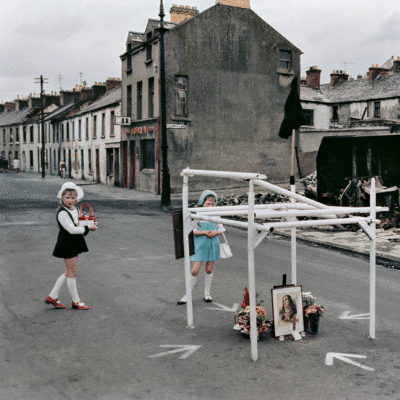Or maybe you are both … Daisy Hickey explores the differences …
The term “kindness” has been bandied around tiringly over the past few years, the boundaries of its meaning pushed and pulled. Twitter was rightfully awash with the #BeKind hashtag following the 2020 suicide of Caroline Flack. The imperative hashtag was used, both to memorialise the beloved, bubbly TV presenter, and to combat the online vitriolic attacks that have become the gauntlet famous women must run in the digital era. Certainly, any talk of kindness and its significance to society is always welcome on digital cesspits – sorry, platforms. The efficacy of the #BeKind trend however… remained to be seen.
As 2020 gathered awful pace, and COVID-19 struck Toronto, a new kindness practice – caremongering – emerged in local communities. Caremongering described the Canadian effort to reassure and help their neighbours, in defiance of its problematic antithesis, scaremongering. The Canadians remained on-brand – as their people grew fearful, their loved ones became helpful. The caremongering trend spread across communities around the world as everyday people made sincere efforts to assist others. These acts could be small – fetching groceries for elderly neighbours, delivering blankets and food to the vulnerable – or large – setting up local volunteering groups to offer services like walking dogs, or mowing the lawn.
Peppering your Tweets with kind imperatives, and acting out kind deeds in practice are wildly different, yet the two behaviours seek to exhibit the same virtue. Unfortunately, to me – they are completely different. To attach #BeKind in a Tweet is nice – while to caremonger, is kind.
It can be difficult to properly outline the distinction between kindness and niceness, you know it when you see it. Both are welcome, both are crucial, both are helpful. But one is critically connected to our humanhood, while the other is synonymous with our civility.
1 KIND ACTS ARE OFTEN QUIET
Wordless generosity, silent protectiveness, watchful care, are all versions of kindness, that require no announcement or statement. Think of some of the greatest acts of kindness that you have ever heard of. Maybe it was the grandmother who sent money to a neighbour’s child via Christmas card every year. There was to be ‘no more said about it’. It might be a brother’s secret midnight rescue of his sister from a party she should not be attending, or maybe the vial of Rescue Remedy passed furtively from aunt to niece at the family get-together before a Leaving Certificate.
It would be a nice gesture for the grandmother to write a card and ask her neighbour if she needs help. It would be a nice thing for the brother to arrange a taxi for his sister to get home safely. It would be a nice act for the aunt to tell her niece that there was no need to worry, and that panicking was normal, before a state exam, but that she’d be alright.
See the difference?
2 KINDNESS BEGETS KINDNESS, NICENESS OFTEN GOES UNNOTICED
It is hard to forget a kind act done for you. True kindness speaks volumes, and creates an impulse to repay it, deep within us. Sometimes this impulse never expires, and perseveres through grief. We never forgive ourselves, or others, for dishonouring an act of genuine kindness.
Opposingly, we can all recall times where our niceness to others (or others’ niceness to ourselves) went unacknowledged, or disregarded. ‘Thank you’ is often not met with ‘you’re welcome’. Invitations extended are often not returned. A comment intended to flatter ends up insulting. It is a regular occurrence in everyone’s friendships and relationships that the proverbial ball is dropped, and manners aren’t upheld, tact isn’t executed. Intentional or accidental, we roll our eyes, we move on. But why are these intuitively minor offences, in comparison to the denial of a clearly kind act?
3 NICENESS IS SURFACE, KINDNESS IS CORE
Consider for a moment, the kindest in your company. You’ve known them a while, right? You’ve been through a thing or two together. You call them kind because you understand their character, their flaws, their tendencies. When they do something kind, you see it in their context. Take imaginary Shannon, who never shares notes. You know this because you and Shannon have been studying for years. It has honestly always annoyed you. But Shannon is kind. You know she’s kind, because when she sees a girl in need, struggling to pass, she’ll hand over her prized summaries.
4 NICENESS IS ABOUT CIVILITY, KINDNESS IS ABOUT SACRIFICE
True kindness to me, is the tale of a punishable diversion created by a schoolgirl in morning assembly, allowing her best friend beside her – unfortunately suffering a bodily crisis – to wrap a jumper around her waist and sprint toward the bathroom. The kind friend – the one noisemaking, to create the distraction – received major punishment from the administrating nun for her spontaneous performance of Holiday by Kylie Minogue in the middle of assembly. This friend took the punishment, and kept the secret.
Acts of real kindness tend to involve sacrifice, but the sacrifice needn’t be material. Here, the Minogue impersonator showed both kindness and grit in playing the fool to save her friend’s blushes.
It might have been nice for the schoolgirl to later follow the best friend to the bathroom, and tell her that no-one saw her leave, or lend her materials that she might need (in fact, this is compulsory). But the previous demonstration of foolishness expressed love and generosity, because she traded something for it – safety from punishment.
LOVETHEGLOSS.IE?
Sign up to our MAILING LIST now for a roundup of the latest fashion, beauty, interiors and entertaining news from THE GLOSS MAGAZINE’s daily dispatches.









